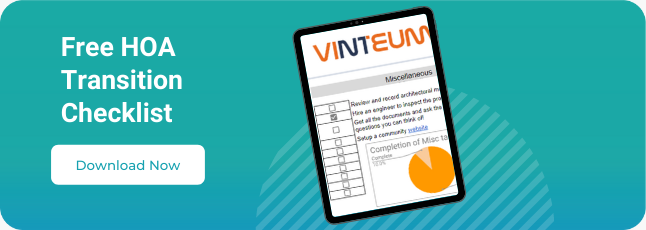Once the transition committee is set up, they can lay the foundation for the type of community they want to live in and manage. What they start during the transition, it’s easier to continue after. Communication in HOA transitions is key, and after the HOA is board-controlled, communication continues to be important.
In this article, we’re going to go through why communication matters during the transition from developer to board, and who the board should communicate with during the transition.
Why is Communication Important?
Transparency
Communication is an important part of increasing transparency. Many established HOAs face tension between the board and residents because there is a lack of transparency and communication. So that you don’t face problems in the future, start being as transparent as possible as early as you can.
HOA Transition from Developer to Owner
Trust
When residents are in the loop about what’s going on, it increases their trust and engagement with the board. That means you’ll be able to meet quorum more easily at your board meetings. It also means more people will want to be part of the board and on committees.
Start communicating ASAP
That groundwork should start the instant that the transition committee is created, that way when the board takes over it is easier to continue communicating well and enjoying the benefits.
Having good communication during HOA transition is a best practice laid out in the CAI’s 2014 report.
Who Needs to Communicate With Whom?
Board to Developer
While your HOA transitions from being developer to owner-controlled, you need to work closely with the developer. As the developer can sign contracts and creates the earliest community rules, the transition committee needs to work closely with them.
As you audit documents, inspect the community association with engineers, you should keep the developer in the loop. You also need to talk to them about maintenance, fixing issues, and receiving engineering and architectural plans.
Board to Residents
As residents move into the community, the new board should be introducing themselves and sharing with residents how the community association is progressing. That way they know how the transition is going, and what to expect.
You can communicate with residents in different ways, the easiest and most effective way is to email them. If you have a lot of older residents, then calling is a great option as well. You can call residents one by one. This is a good thing to do to first introduce yourself and welcome them to your HOA. After that, automated calls are an incredible tool.
Communication in HOA transitions with residents about both great news and the roadblocks that you face. Being transparent means that you also share bad and difficult news.
Board to Professionals
Communication in HOA transition includes talking with different industry professionals.
Attorney
An attorney is very important, as they can answer questions about your state’s laws. They can also check your CC&Rs, articles of incorporation, and contracts to ensure they’re watertight. The board should have an attorney to help them during the transition. You should communicate with them regularly, and make sure that you ask all the questions that you have.
Engineer
An engineer conducts a transition study, which provides you with a list of defects and information on warranties and utility line locations. If there are defects, the board should communicate with the developer so that they fix them. The board should communicate with the engineer to make sure they get all the necessary information from the transition study.
Accountant
Having the finances under the board’s control is arguably the most important stage in an HOA transition. Working with a Certified Public Accountant (CPA) ensures that no money is misplaced, and the board feels comfortable taking over controlling the finances. Once again, all board members should ask all the questions that they have. The treasurer should be in especially close communication with the CPA.
Manager
Some community associations choose to hire a licensed community association manager during the transition. They can be helpful, as they have contacts among other industry professionals that can help you. They also have experience, so can help you navigate the transition with more ease. The board should research different management companies before deciding, and then they should work closely with the manager. It’s important to communicate well with them to make sure you have a good working relationship.
Next Steps: Communication in HOA Transition
Communication in HOA transition with different parties will help your transition be as smooth as possible. As you get closer to being owner-controlled, the board should look at having HOA software. Having software can help you communicate, manage your community and finances, and organize maintenance and amenities. It is a useful tool that helps you to be more efficient and save time.
Neigbrs by Vinteum is an award-winning software made for HOAs, that focuses on improving communication. If you want to learn more about how we can help you, schedule your free demo.





